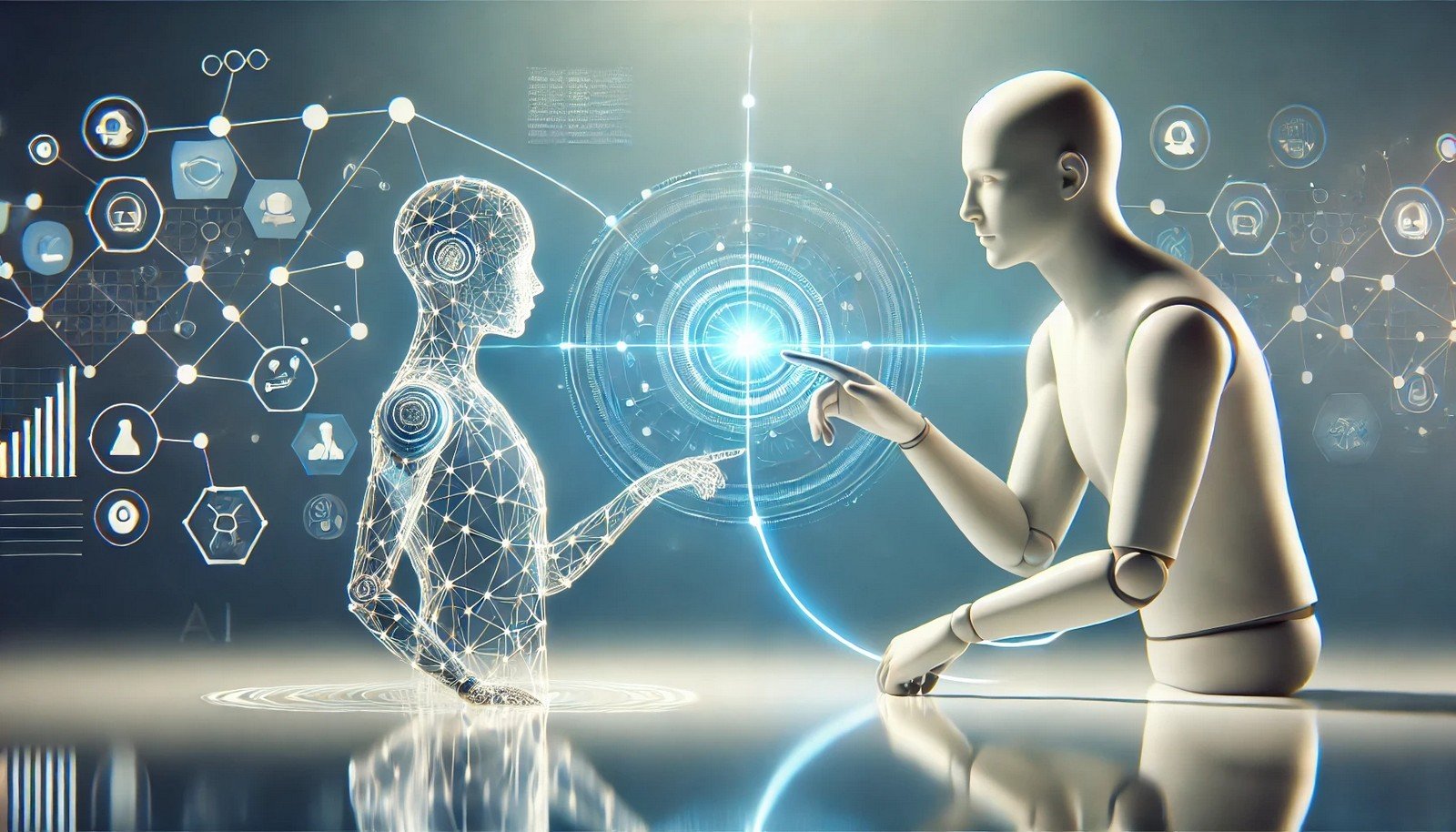Augmented Intelligence

Quick Navigation:
- Augmented Intelligence Definition
- Augmented Intelligence Explained Easy
- Augmented Intelligence Origin
- Augmented Intelligence Etymology
- Augmented Intelligence Usage Trends
- Augmented Intelligence Usage
- Augmented Intelligence Examples in Context
- Augmented Intelligence FAQ
- Augmented Intelligence Related Words
Augmented Intelligence Definition
Augmented Intelligence is a collaborative approach between humans and artificial intelligence (AI) systems, enhancing human decision-making by amplifying capabilities rather than replacing them. In fields like healthcare, finance, and customer service, augmented intelligence tools assist professionals by analyzing vast amounts of data quickly and accurately, supporting complex decisions. This approach aims to empower humans to work more effectively with AI-driven insights.
Augmented Intelligence Explained Easy
Imagine a really smart calculator that doesn’t just give you answers but helps you understand the problem better. Augmented Intelligence is like that: it works with people, not instead of them, to help them make better choices by showing useful information and suggesting ideas.
Augmented Intelligence Origin
The concept of augmented intelligence emerged as an alternative to traditional AI, focusing on human empowerment rather than replacement. It became prominent with the rise of machine learning in the early 2000s, emphasizing a human-centered approach to AI.
Augmented Intelligence Etymology
Derived from the Latin “augmentare,” meaning “to increase,” augmented intelligence highlights the enhancement of human abilities with machine support, prioritizing a collaborative rather than autonomous AI approach.
Augmented Intelligence Usage Trends
In recent years, augmented intelligence has seen increased adoption across industries. Businesses increasingly rely on it to drive decisions based on data insights, often pairing human expertise with AI for optimal results. This trend is notable in sectors requiring significant judgment, like legal research, healthcare diagnostics, and risk analysis.
Augmented Intelligence Usage
- Formal/Technical Tagging:
- Artificial Intelligence
- Human-Machine Collaboration
- Data-Driven Decision Making - Typical Collocations:
- "augmented intelligence systems"
- "human-AI collaboration"
- "AI-assisted decision-making"
Augmented Intelligence Examples in Context
- An augmented intelligence tool helps doctors by quickly analyzing patient records, suggesting possible diagnoses based on data.
- Financial advisors use augmented intelligence to assess market trends and provide personalized investment advice to clients.
- Customer service representatives use augmented intelligence systems to offer better support, with AI suggesting helpful responses.
Augmented Intelligence FAQ
- What is augmented intelligence?
Augmented intelligence is a form of AI that assists rather than replaces human decision-making. - How is augmented intelligence used in healthcare?
It helps doctors by analyzing medical data to support diagnoses and treatment options. - What industries benefit from augmented intelligence?
Fields like healthcare, finance, customer service, and law benefit from its data-driven support. - How does augmented intelligence differ from artificial intelligence?
Unlike traditional AI, it focuses on human-AI collaboration rather than full automation. - Can augmented intelligence work in real-time?
Yes, many systems analyze data instantly to support quick decision-making. - What are common applications of augmented intelligence?
Predictive analytics, customer insights, and recommendation systems are popular applications. - Is augmented intelligence suitable for all businesses?
It’s most effective in data-intensive sectors requiring expertise-based decision-making. - Does augmented intelligence replace jobs?
No, it’s designed to assist professionals, not replace them, by enhancing their decision-making. - How does augmented intelligence handle data privacy?
Responsible implementations prioritize secure, ethical data usage aligned with privacy laws. - What is the future of augmented intelligence?
As AI evolves, augmented intelligence will likely become essential in complex, data-rich fields.
Augmented Intelligence Related Words
- Categories/Topics:
- Human-Machine Collaboration
- Decision Support Systems
- AI-Augmentation
Did you know?
Augmented Intelligence became a key focus in AI after IBM’s Watson won the Jeopardy! quiz show in 2011. Rather than replacing human roles, Watson-inspired systems were adapted to support humans, especially in areas like healthcare and finance, where data analysis complements expert judgment.
PicDictionary.com is an online dictionary in pictures. If you have questions or suggestions, please reach out to us on WhatsApp or Twitter.Authors | Arjun Vishnu | @ArjunAndVishnu

I am Vishnu. I like AI, Linux, Single Board Computers, and Cloud Computing. I create the web & video content, and I also write for popular websites.
My younger brother, Arjun handles image & video editing. Together, we run a YouTube Channel that's focused on reviewing gadgets and explaining technology.



Comments powered by CComment